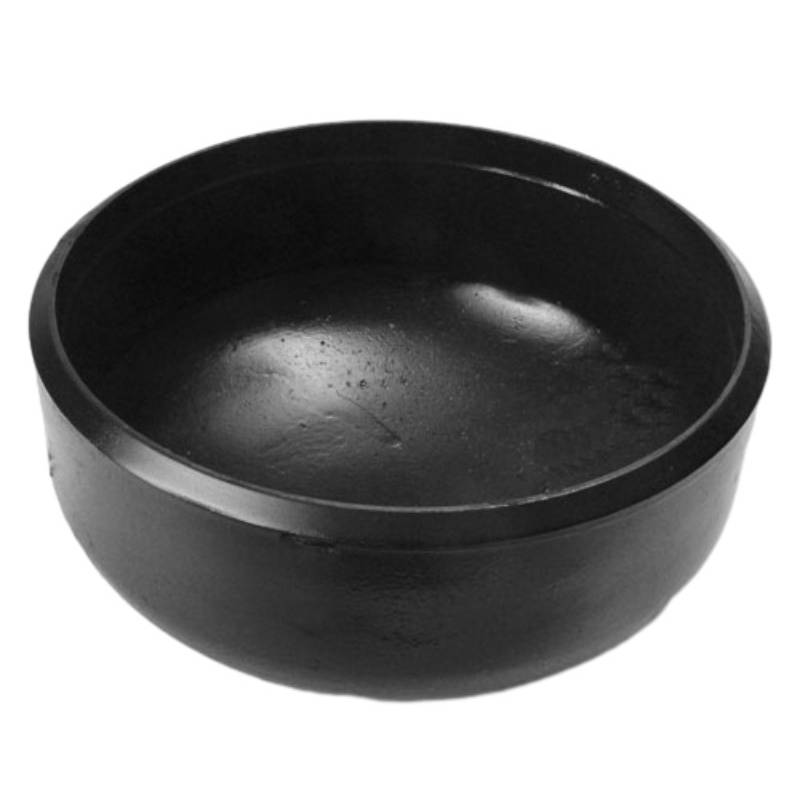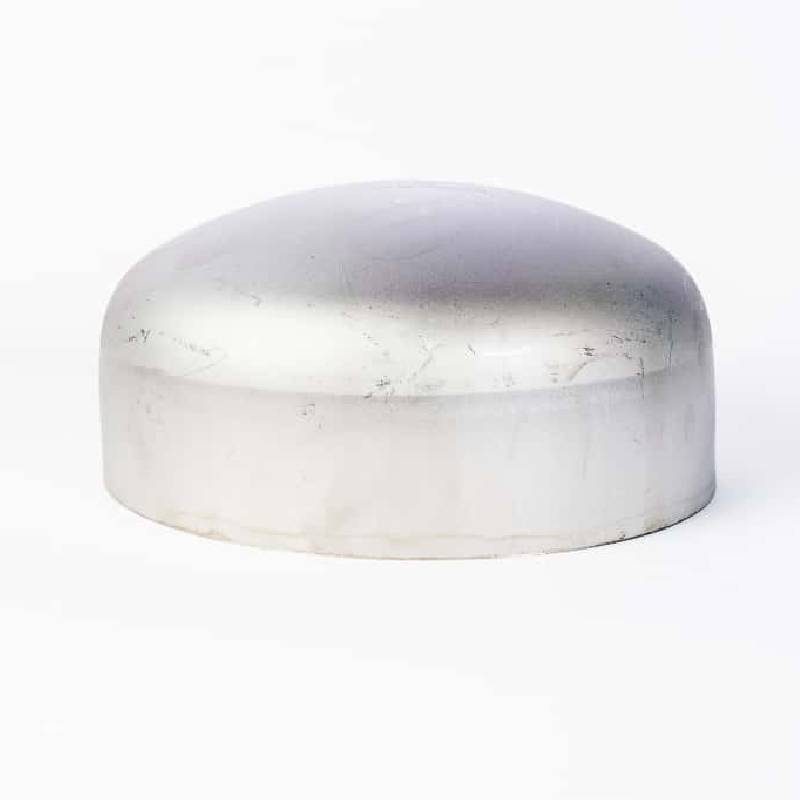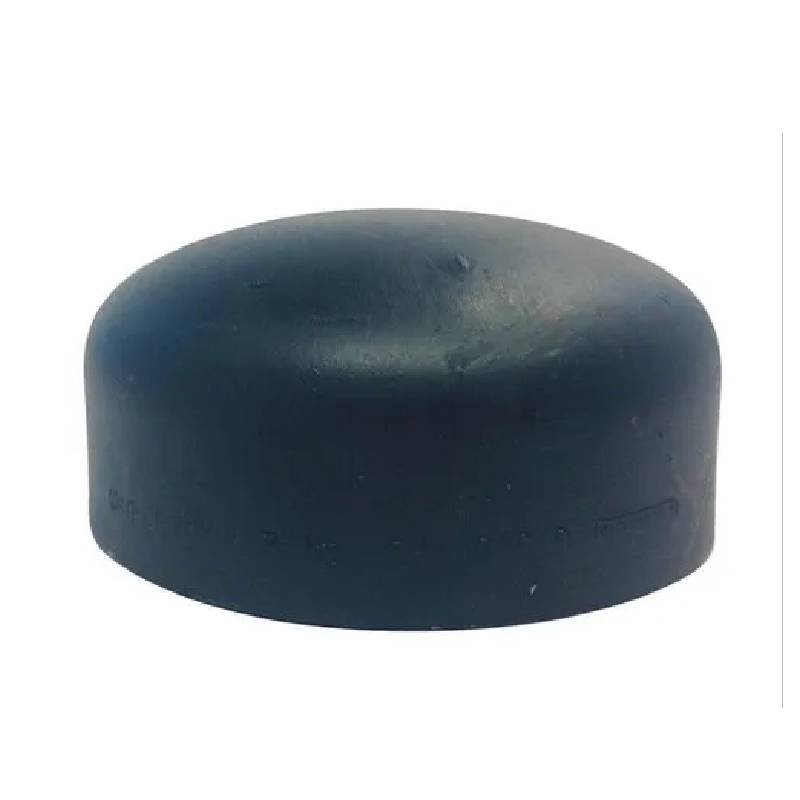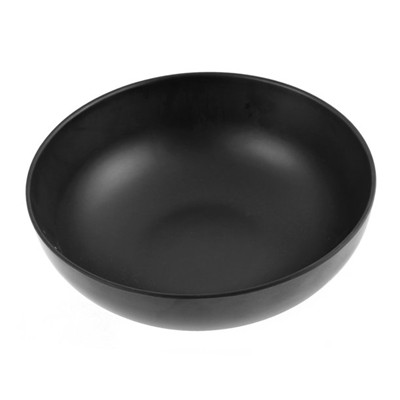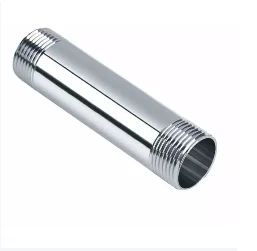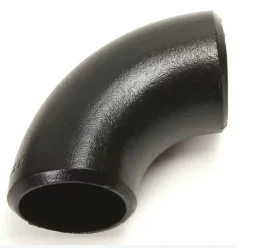-
การปฏิบัติตามมาตรฐาน:
ฝาครอบเชื่อมชน ANSI/ASME B16.9 เป็นไปตามข้อกำหนดที่ระบุโดย American National Standards Institute (ANSI) และ American Society of Mechanical Engineers (ASME) มาตรฐานนี้รับประกันความสม่ำเสมอ ความเข้ากันได้ และความน่าเชื่อถือในการออกแบบและประสิทธิภาพ อำนวยความสะดวกในการบูรณาการเข้ากับระบบท่อได้อย่างราบรื่น
-
การเชื่อมต่อแบบเชื่อมชน:
ฝาครอบเชื่อมชนได้รับการติดตั้งโดยการเชื่อมเข้ากับปลายท่อโดยตรง ทำให้เกิดการเชื่อมต่อที่ถาวรและแข็งแกร่ง เทคนิคการเชื่อมแบบชนเกี่ยวข้องกับการให้ความร้อนปลายท่อและฝาปิดจนถึงจุดหลอมเหลว จากนั้นจึงกดเข้าด้วยกันเพื่อสร้างพันธะทางโลหะวิทยา วิธีการเชื่อมนี้ทำให้ข้อต่อแข็งแรงและป้องกันการรั่วซึม ทำให้ไม่จำเป็นต้องใช้วัสดุปิดผนึกเพิ่มเติม
-
ปิดผนึกปิด:
หน้าที่หลักของฝาเชื่อมแบบชนคือการปิดแบบปิดผนึกสำหรับปลายท่อในระบบท่อ ฝาครอบเหล่านี้มีพื้นผิวทรงโดมหรือเรียบซึ่งปิดช่องเปิดของท่อ ป้องกันของเหลวหรือก๊าซไหลเข้าหรือออก การเชื่อมต่อแบบเชื่อมช่วยให้มั่นใจในการปิดผนึกที่แน่นหนา ลดความเสี่ยงของการรั่วไหล และรักษาความสมบูรณ์ของระบบ
-
การเลือกใช้วัสดุ:
ฝาครอบเชื่อมแบบชนมีจำหน่ายในวัสดุหลากหลายเพื่อให้เหมาะกับสภาพการทำงานและตัวกลางที่แตกต่างกัน วัสดุทั่วไป ได้แก่ เหล็กกล้าคาร์บอน เหล็กกล้าไร้สนิม โลหะผสม และโลหะผสมที่ไม่ใช่เหล็ก เช่น ทองเหลืองหรือทองแดง การเลือกใช้วัสดุขึ้นอยู่กับปัจจัยต่างๆ เช่น อุณหภูมิ ความดัน ความต้านทานการกัดกร่อน และความเข้ากันได้กับของไหลที่กำลังขนส่ง
-
การใช้งานที่หลากหลาย:
ฝาครอบแบบเชื่อมชน ANSI/ASME B16.9 พบการใช้งานในอุตสาหกรรมที่หลากหลาย รวมถึงน้ำมันและก๊าซ ปิโตรเคมี การแปรรูปทางเคมี การบำบัดน้ำ และการผลิตไฟฟ้า ใช้สำหรับปิดผนึกปลายท่อ ภาชนะ ถัง และอุปกรณ์ ให้ป้องกันการปนเปื้อน การกัดกร่อน และอันตรายต่อสิ่งแวดล้อม
-
ตัวเลือกการปรับแต่ง:
แม้ว่าฝาครอบเชื่อมแบบชนจะยึดตามขนาดและข้อกำหนดมาตรฐาน แต่มีตัวเลือกการปรับแต่งเพื่อให้ตรงตามข้อกำหนดเฉพาะของโครงการ ซึ่งอาจรวมถึงการเปลี่ยนแปลงขนาดฝา ความหนา เกรดวัสดุ และผิวสำเร็จ ฝาปิดแบบกำหนดเองสามารถปรับแต่งให้เหมาะกับการกำหนดค่าท่อเฉพาะ และรองรับเงื่อนไขพิเศษหรือสภาพแวดล้อมการทำงาน
Buttweld Fittings Manufacturing Process
The manufacturing of buttweld fittings primarily involves two methods: cold drawing and hot forming.
The general steps in the process are as follows:
1. Material Preparation
The initial stage involves sourcing and preparing the raw materials needed for production.
2. Cutting
Pipes or plates are cut into specified shapes or lengths as per requirements.
3. Forming
The materials are shaped into various configurations, such as buttweld pipe caps, 90-degree elbows, and reducing tees. Cold drawn products are formed directly into their designated shapes using hammers, mechanical presses, or upsetters. In contrast, the hot forming process begins with heating the material, followed by shaping it.
4. Heat Treatment
This process entails heating and cooling the metals to alter their microstructure, enhancing both physical and mechanical properties to achieve the desired characteristics.
5. Machining
Sharp cutting tools are employed in this stage to refine shapes and prepare the ends of the fittings.
6. Inspection and Testing
The products undergo a thorough inspection in accordance with relevant standards, checking dimensions, material quality, and appearance.
7. Coating (if required)
Finally, a coating may be applied as necessary to meet specific requirements.
Butt Weld Pipe Cap FAQs
-
What materials are the butt weld pipe caps made from?
- Our butt weld pipe caps are crafted from high-quality materials including carbon steel, stainless steel, and alloy steel. This selection ensures durability and resistance to corrosion, making them suitable for a wide range of applications in various industries such as oil and gas, water supply, and construction.
-
What sizes are available for the butt weld pipe caps?
- We offer a comprehensive range of sizes for our butt weld pipe caps, from small diameters to large fittings, accommodating various pipe sizes. Please refer to the product listing for specific dimensions or contact our customer support for assistance in selecting the appropriate size for your project needs.
-
Are these butt-weld pipe caps suitable for high-pressure applications?
- Yes, our butt weld pipe caps are designed to support high-pressure applications. They meet industry standards and specifications, providing a secure and leak-proof seal that can withstand significant pressure levels. Be sure to check the specifications to ensure compatibility with your particular system requirements.
-
How do I install the butt weld pipe caps?
- Installing butt weld pipe caps requires welding them directly to the pipe for a strong, permanent connection. We recommend using qualified welders and following proper welding procedures to ensure a secure fit and maintain the integrity of the piping system. For detailed installation guidelines, please consult the accompanying technical documentation.
-
Can these butt-weld pipe caps be used in outdoor applications?
Absolutely! Our butt weld pipe caps are suitable for both indoor and outdoor applications. They are built to withstand environmental factors, making them ideal for exterior installations. For prolonged exposure to harsh conditions, we recommend our stainless steel options for enhanced resistance to corrosion.
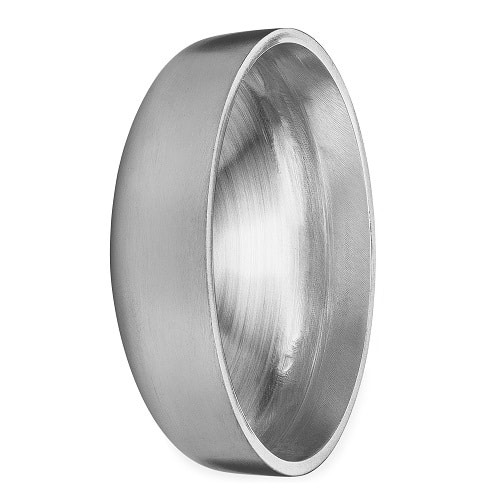
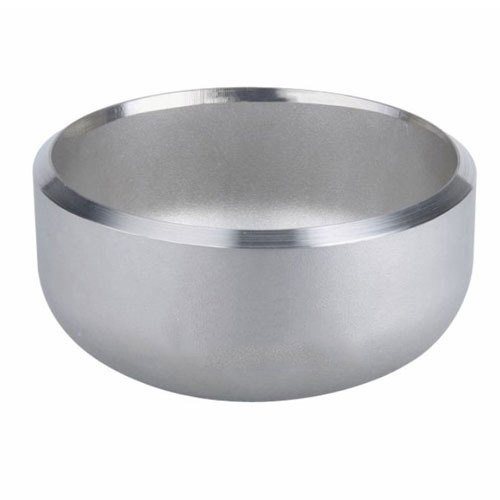
ฝาครอบเชื่อมชน ANSI/ASME B16.9 เป็นส่วนประกอบที่สำคัญในระบบท่ออุตสาหกรรม ให้การปิดปลายท่อที่ปลอดภัยและป้องกันการรั่วซึม การปฏิบัติตามมาตรฐาน ANSI และ ASME การเชื่อมต่อแบบเชื่อมชน ความสามารถในการปิดผนึก และความคล่องตัว ทำให้เป็นสิ่งที่ขาดไม่ได้ในการใช้งานต่างๆ ทั่วทั้งอุตสาหกรรม ด้วยฝาปิดแบบเชื่อมชน วิศวกรและผู้ปฏิบัติงานสามารถรับประกันความสมบูรณ์ ความปลอดภัย และประสิทธิภาพของระบบท่อ ช่วยให้การดำเนินงานราบรื่นและไร้ปัญหา







